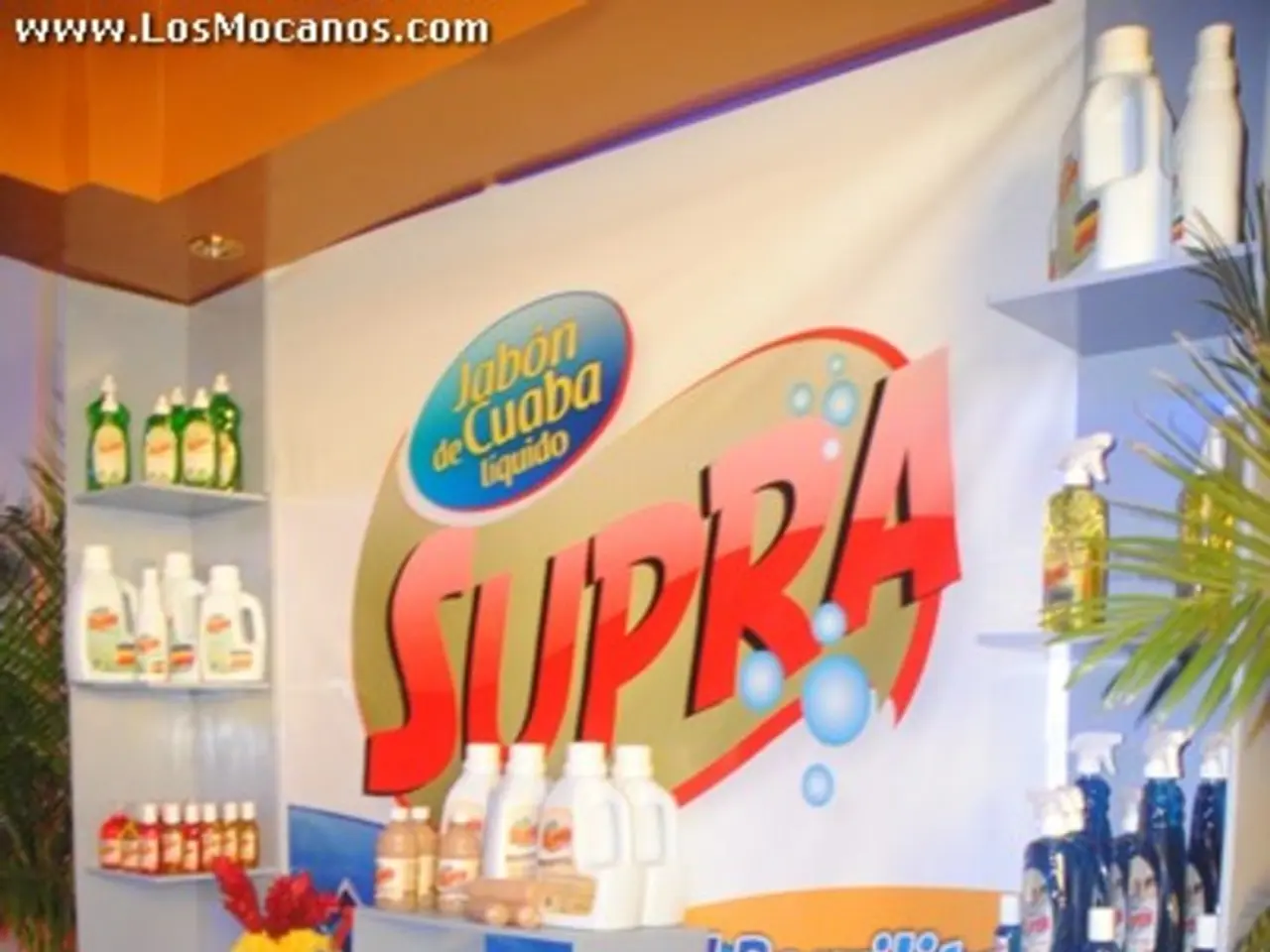Retail establishments fail to maintain price tags.
In 2024, the share of private labels in hard discounters reached an impressive 60-70%, according to industry reports. However, a significant shift has occurred in 2025, with the registration of own-brand trademarks by major grocery retailers in Russia experiencing a decrease, as predicted by Alexei Vanchugov, managing partner of "Vanchugov and Partners".
This downturn is attributed to the unfavourable economic situation in Russia, as well as the disruption in foreign operations and supply chains following geopolitical tensions and international sanctions. These events have led many international companies to suspend or completely cease activities in Russia, making it challenging for retailers to develop or expand their own-brand lines.
As a result, the market has seen an increase in reliance on imported goods from new, less familiar sources, and a acceleration of domestic modernization efforts focused on self-sufficiency and import substitution within agriculture and food production.
This trend has had various effects on the market. For instance, the launch of new own-brand products by major retailers has been reduced due to supply chain disruptions and sanctions. On the other hand, there has been a rising demand for new and ethical brands among Russian consumers, altering the competitive dynamics in grocery retail.
The market effect in 2025 also includes an increased emphasis on domestic agricultural modernization to support food security and local production growth, a rising demand for new and ethical brands among Russian consumers, altering competitive dynamics in grocery retail, and the expansion of alternative sales channels such as over 185,000 pick-up points across Russia.
Despite these challenges, consumer spending on food decreased by 0.6% year-on-year in May-June 2025, according to Alfa Bank data. Alfa Bank analysts predict a prolonged stagnation in retail due to the correction in consumer activity affecting all product groups.
The decrease in the registration of trademarks in the food retail sector is expected to continue, with major retailers like Mercury Retail Group, "Samokat", and X5 Group experiencing significant decreases in the number of new private label registrations year-on-year.
In summary, the geopolitical and economic disruptions in 2025 have curtailed trademark registrations by major grocery retailers in Russia, constraining their private label expansion, while driving food sector modernization and changing consumer brand preferences in the market. This trend is expected to continue in the coming months.
- The unfavorable economic climate in Russia, coupled with disruptions in foreign operations and supply chains due to geopolitical tensions and international sanctions, has made it difficult for retailers to develop or expand their own-brand lines, affecting the finance side of business.
- As a result of the decreased registration of own-brand trademarks by major grocery retailers and the increased demand for new, ethical brands among consumers, the competitive landscape within the Russian grocery retail market has shifted significantly, impacting business dynamics.




